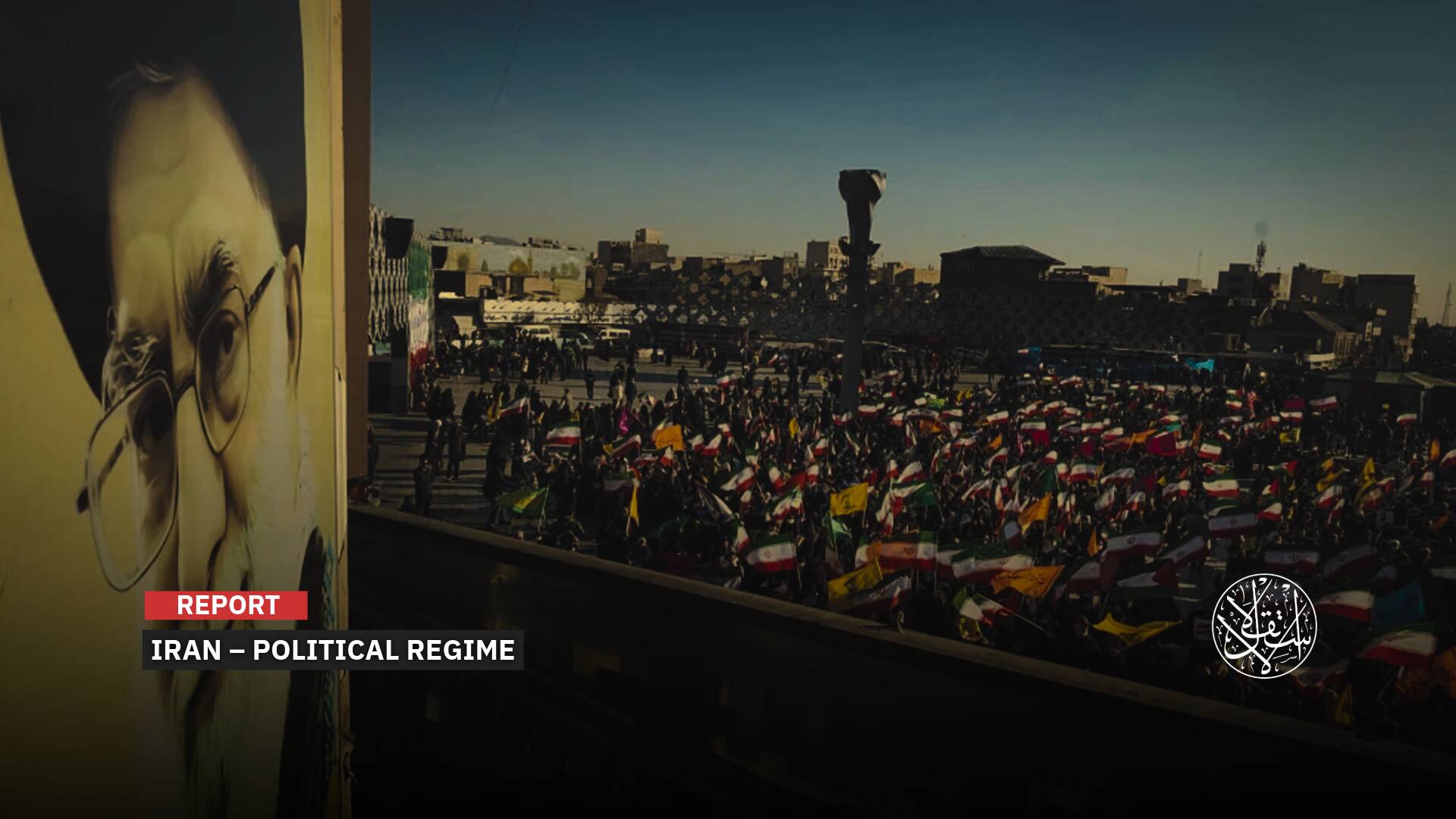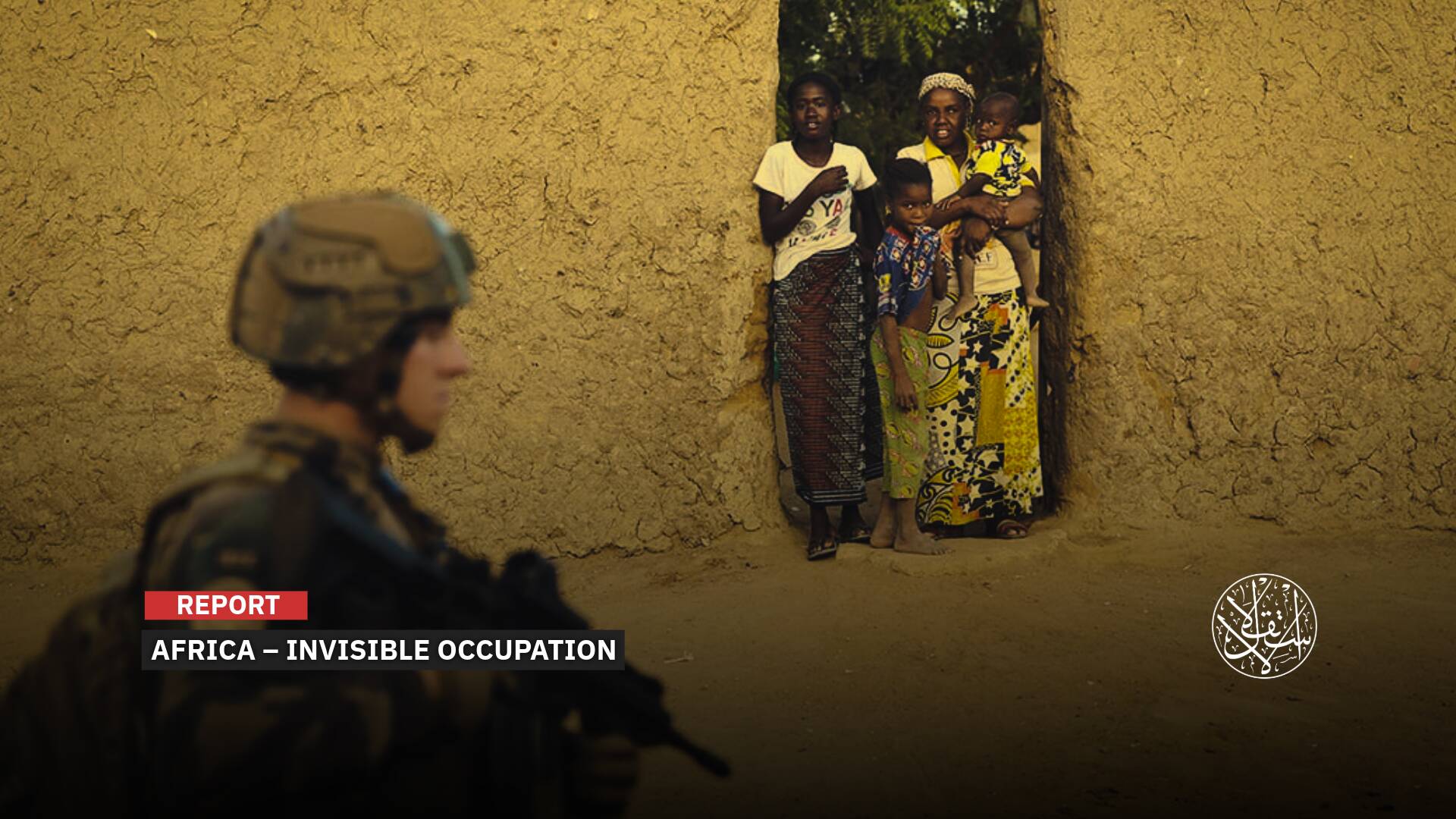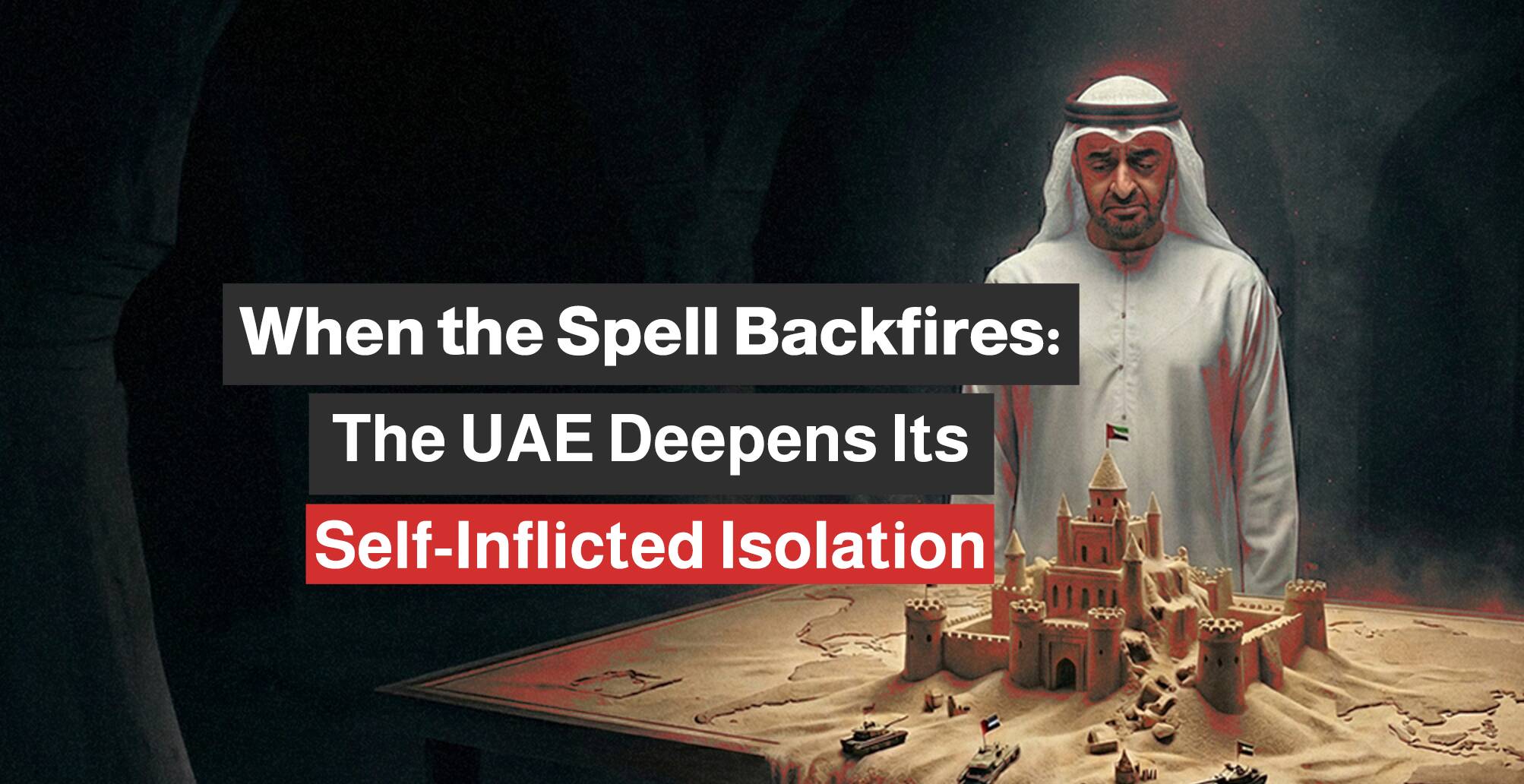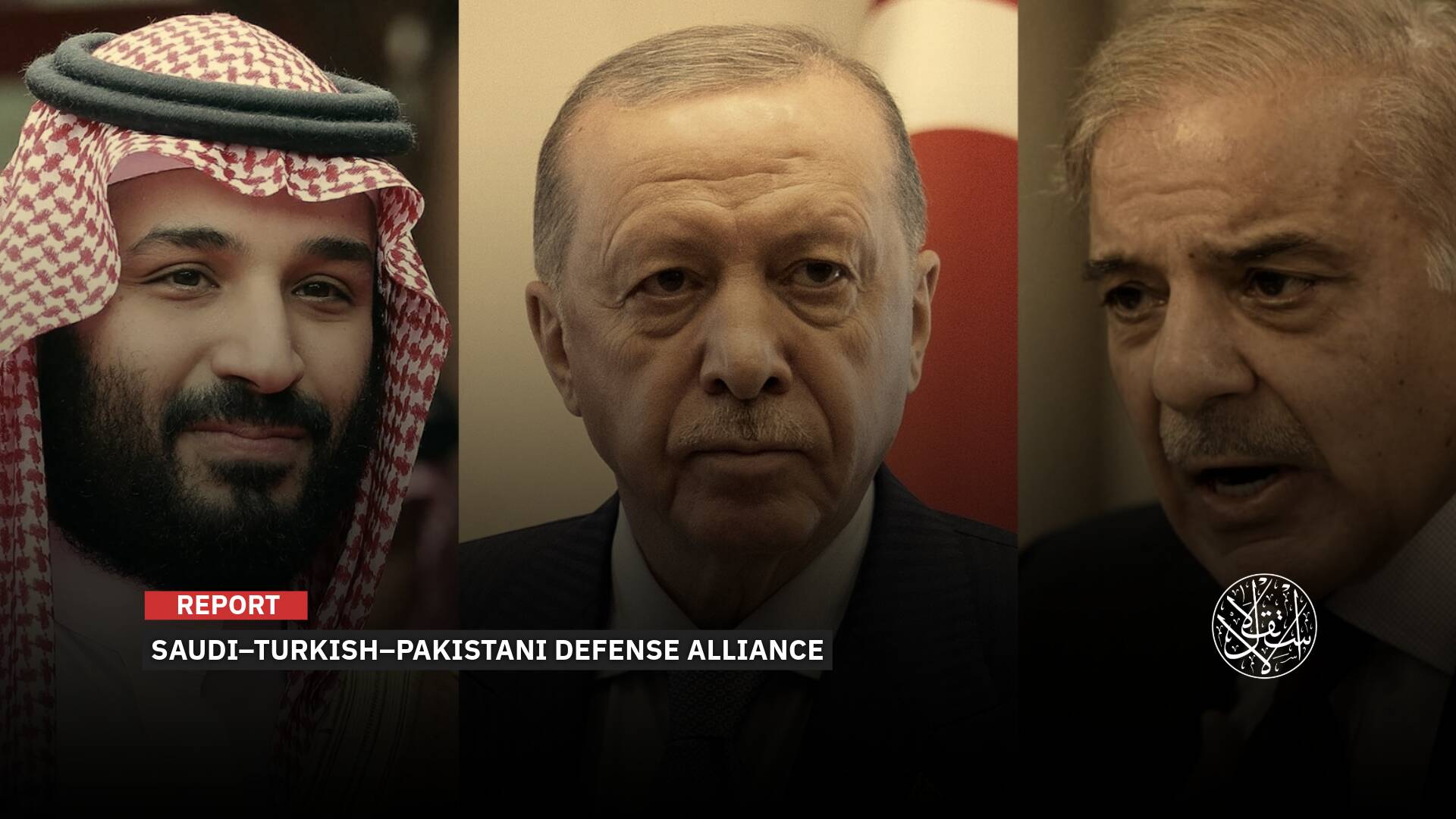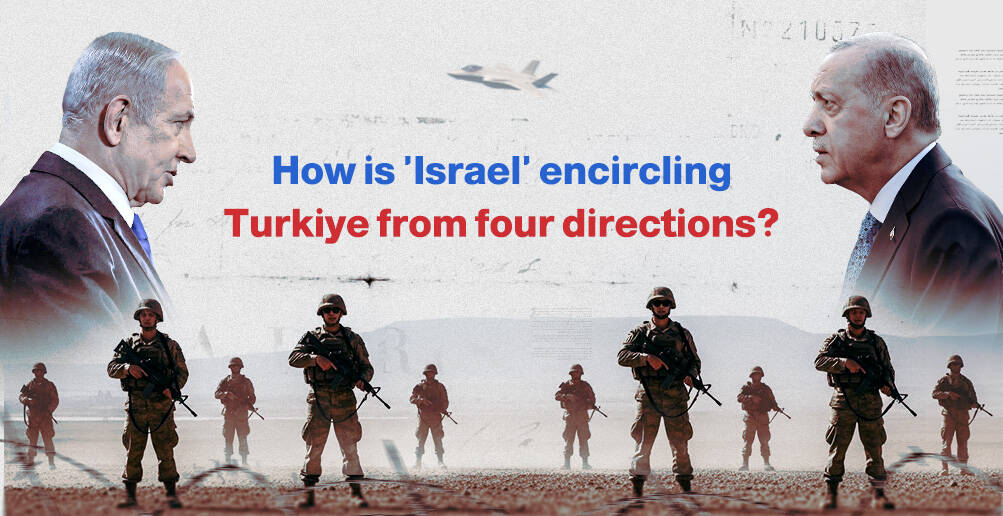Quick Reaction Force: Why Trump Is Expanding the Use of the US Military in Domestic Affairs
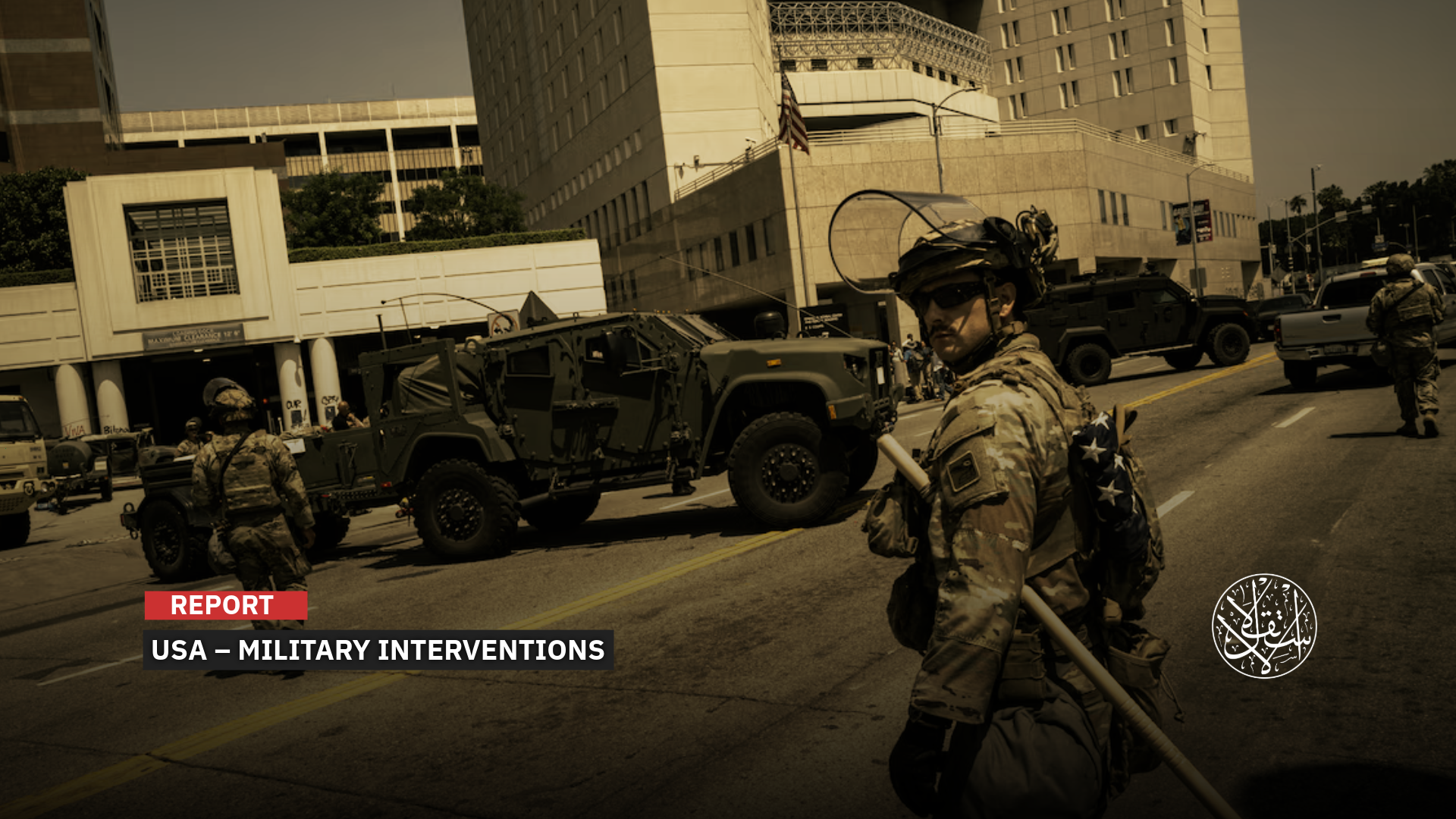
“Critics say Trump is turning the military into a personal police force that answers only to him.”
US President Donald Trump's moves to expand the role of the US military in domestic affairs have raised concerns among Democrats, lawmakers, and the public.
Reports recently emerged of Trump's intention to create a quick reaction force to support law enforcement in emergency situations.
In parallel, Trump's recent decision to deploy hundreds of National Guard troops to Washington, D.C., was described as his most aggressive move yet to expand the use of military force on American soil.
During the first seven months of his second term, Trump has overseen the deployment of approximately 20,000 federal troops to the U.S., including members of the National Guard, Army, Navy, Air Force, and Marines, according to the Pentagon.
Quick Reaction Force
The Trump administration is discussing a secret plan to use US military personnel to quell domestic civil unrest.
The plan, estimated to cost hundreds of millions of dollars, could deploy dozens of troops to troubled states within an hour.
According to documents reviewed by The Washington Post, the Trump administration is formally considering creating a quick reaction force, consisting of hundreds of National Guard troops tasked with quickly deploying to U.S. cities facing protests or other unrest.
The plan calls for 600 troops to be placed on permanent alert, capable of deploying within an hour. They will be divided into two groups, stationed at military bases in Alabama and Arizona, targeting areas east and west of the Mississippi River.
If adopted, the new force could cost hundreds of millions of dollars if military aircraft and aircrew are required to be ready 24/7.
The plan could begin implementation in fiscal year 2027 and be funded through the Pentagon's traditional budget.
This proposal represents a potential expansion of Trump's desire to use the military on U.S. soil, relying on a provision in U.S. law that allows the commander-in-chief to circumvent restrictions on the use of the military within the U.S.
The president can mobilize National Guard forces for federal missions within the U.S. under two federal laws.
The first, under Title 10, places the forces under the president's control, enabling them to support law enforcement activities without making arrests or investigations. The second, under Title 32, places the forces under the control of their state governor, but with federal funding.
It is noteworthy that the proposal now under review would allow the president to mobilize forces and apply Title 32 provisions to them in a state experiencing unrest.
Documents revealed the potential for political discord if the governor refused to cooperate with the Pentagon.
The first force is supposed to be ready to move within an hour of a decision to intervene in a disturbance, while the second and third groups will be ready within 2 hours and 12 hours, respectively, and will be deployed upon being placed on high alert. Their mission could extend to 90 days.
The plan builds on a smaller 2020 test run when Alabama and Arizona each put 600 Guard members on alert ahead of the presidential election.
The documents raised concerns about the reduced availability of the National Guard, the cost of the program, logistical challenges, and the possible public and political impact, along with other negative external impacts this program could cause.
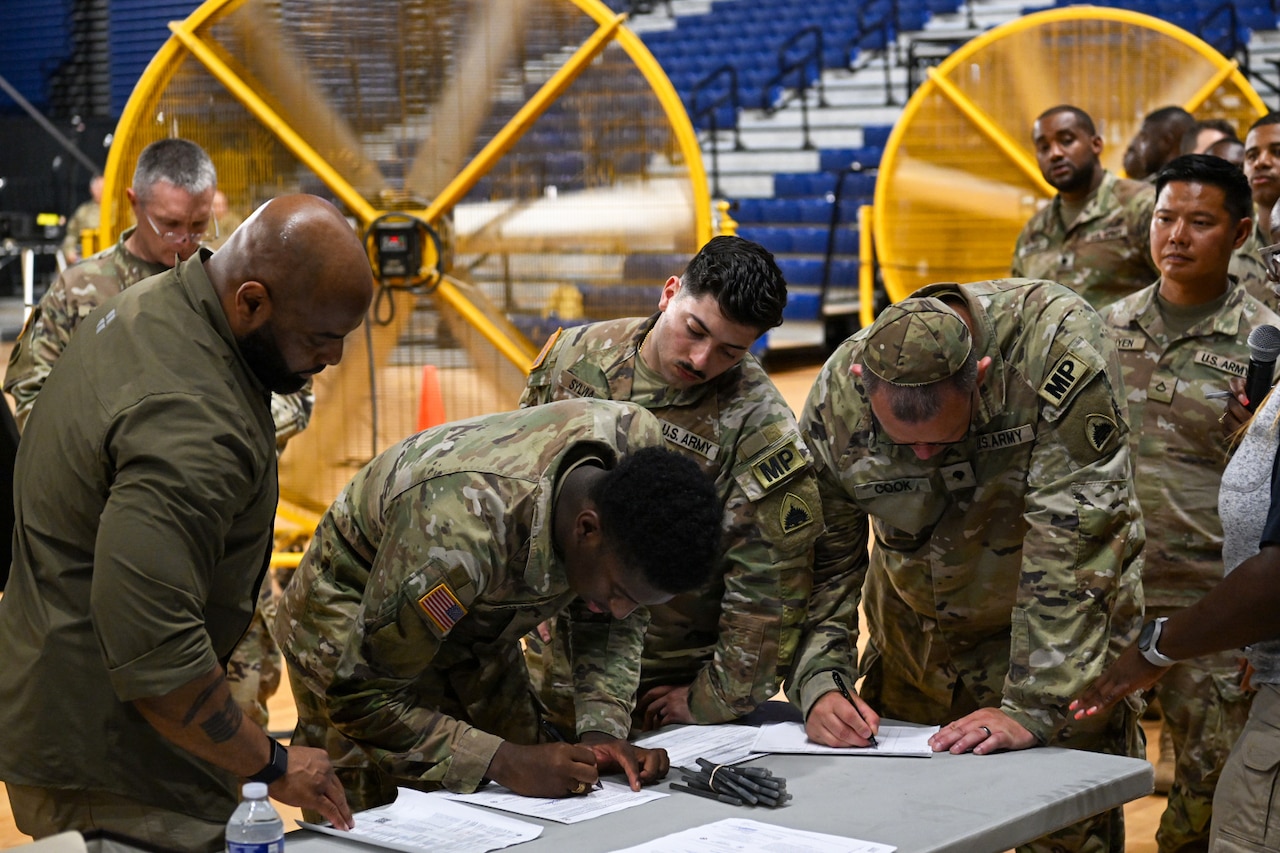
Trump's Rebellion
Trump is known for his comfort with a military presence and for using it whenever the opportunity arises.
In 2020, Trump, then nearing the end of his first term, requested 10,000 National Guard and Army troops to be deployed to the streets of Washington, D.C., to quell protests sparked by the killing of a Black man by a white police officer.
However, then-Secretary of Defense Mark Esper and Chairman of the Joint Chiefs of Staff General Mark Milley rejected his request, ordering only 1,600 troops, without deploying them to the streets.
Trump appears to have learned his lesson well in his second term, appointing officials who are completely loyal to him and carry out his orders without question.
In recent months, the Trump administration has sent approximately 10,000 troops to the southwest border to stem the flow of drugs and illegal immigrants.
Last June, Trump ordered 5,000 National Guard troops to Los Angeles to quell protests against the deportation of undocumented residents, despite objections from the California governor and other Democrats.
He also warned that he might repeat the deployment of the National Guard in other cities if necessary.
Last July, Trump signed a secret directive to the Pentagon to begin using military force against drug cartels in Latin America, which his administration has designated as terrorist organizations.
On August 11, Trump ordered the mobilization of 800 National Guard troops to Washington, D.C., to bolster law enforcement efforts and to combat violent crime.
He also threatened to expand his control to other cities, including Chicago and New York, if the crime rate was not addressed.

The National Guard operates as an armed unit under the command of the governors of the 50 states, except when called upon for federal service. The National Guard in Washington, D.C., reports directly to the president.
Since the start of his second term in January, Trump has sought to expand the powers of the presidency, inserting himself into the affairs of major banks, law firms, and universities.
These tactics, which the US president is testing, are not only a test of the democratic system but also of the military establishment, which finds itself under constant pressure, as Trump could force it to deploy at any moment.
Trump hinted last June that he might invoke the law, signed by President Thomas Jefferson in 1807, which allows the president to call in the military to quell a rebellion, domestic violence, or any public disturbance that prevents the enforcement of federal laws or deprives citizens of their constitutional rights.
The law includes conditions on the powers granted to the president without explicitly stating them. The U.S. has used this law 30 times since its enactment, most recently in 1992 under President George H.W. Bush.
It is worth noting that another law, the Posse Comitatus Act (1878), prohibits the U.S. military, including federal armed forces and National Guard troops, from participating in civilian law enforcement, part of an American tradition that views military intervention in government as a threat to freedoms.

Political Priorities
Trump's announcement of the deployment of National Guard troops to several US states, as well as the proposal to create a quick reaction force to address civil unrest, were widely criticized by officials, lawmakers, and prominent US newspapers.
Critics warned the quick reaction force could normalize military involvement in policing. Alabama Rep. Mike Rogers has opposed permanent quick reaction force proposals.
“You don’t want to normalize routine military participation in law enforcement,” said Joseph Nunn of the Brennan Center for Justice.
“This is part of a pattern of the administration using and diverting military resources for non-military domestic goals, whether it’s immigration, fighting drug cartels, or fighting crime in Washington,” said Carrie Lee, a senior fellow at the German Marshall Fund’s Strategic Democracy Initiatives.
“It’s very clear, to me at least, that this administration views the military as a one-size-fits-all solution to its domestic political priorities,” she added.

However, Alabama Senators Katie Britt and Tommy Tuberville have backed Trump’s increased use of the National Guard, calling it essential to restoring order in Washington, D.C., and other cities.
In turn, Washington-based activist Omar Taha explained to Al-Estiklal that the proposal to create a QSF to suppress protests is an alarming escalation and an authoritarian measure that undermines democratic values and civil liberties.
“This force would operate without any accountability to local authorities, raising valid legal and ethical concerns,” he said.



